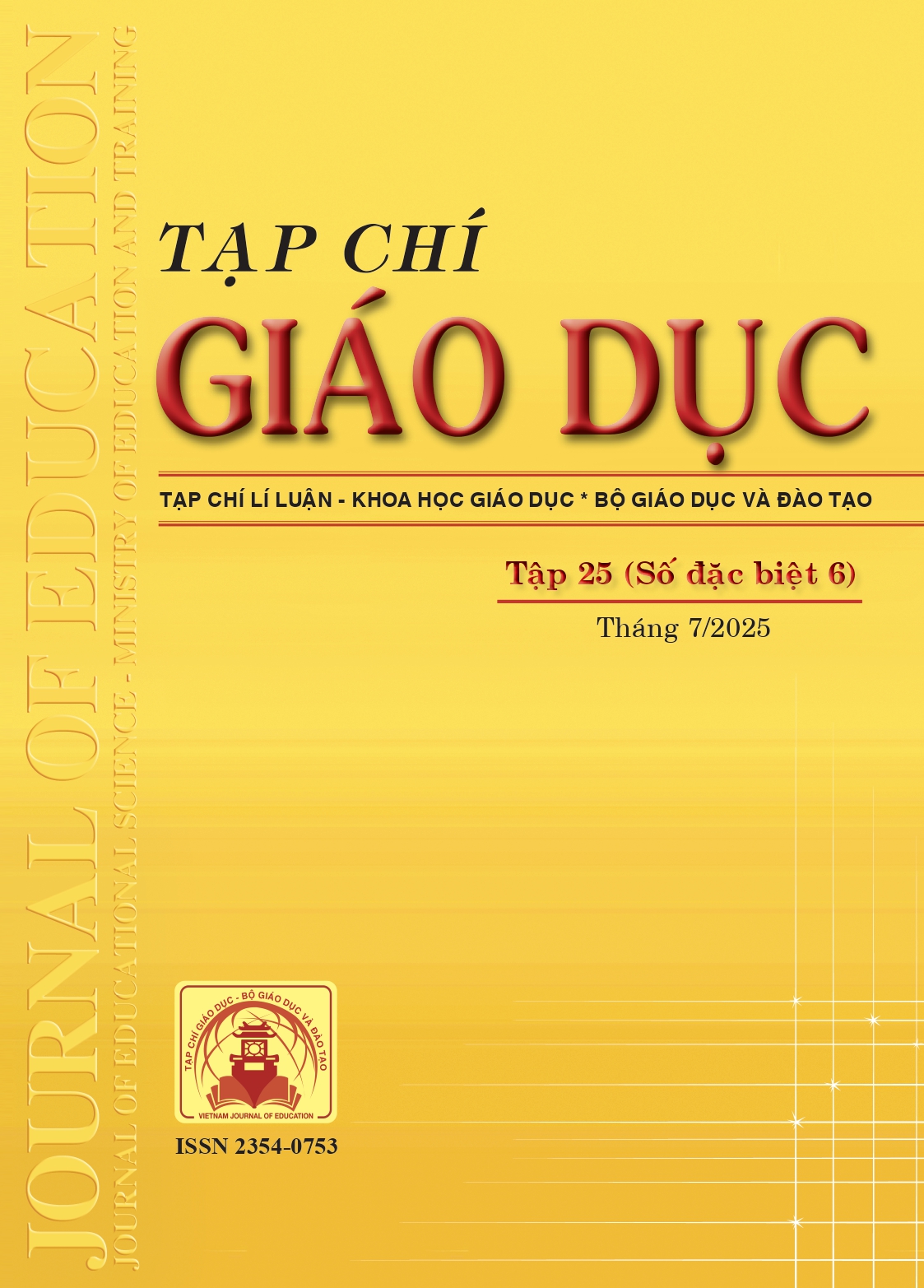Kĩ năng công nghệ thông tin và truyền thông với sự sẵn sàng làm việc của sinh viên ngành Ngôn ngữ Anh trong bối cảnh chuyển đổi số: Nghiên cứu tại Trường Đại học Công nghiệp Hà Nội
Tóm tắt
Information and Communication Technology (ICT) skills are increasingly important for English majors. Many studies have highlighted the impacts of these skills on employability, but few have explored how students assess their own ICT competence. This study focuses on the perceptions of final-year English majors at Hanoi University of Industry regarding their work readiness to enter the job market in relation to ICT skills. The findings revealed that while the majority of students recognized the importance of ICT for global employability, they showed varying levels of competence in specific ICT skills. Additionally, many students struggle to identify trustworthy information sources and adapt to new academic technologies. Recommendations from students highlight the need for increased ICT-related support at the university to ensure that students are fully equipped to meet the demands of the modern workforce.
Tài liệu tham khảo
Brady, R. P. (2010). Work readiness inventory: Administrator’s guide. Job Information Seeking and Training (JIST) Works, 1-16.
Caballero, Catherine L., Walker, A., & Fuller-Tyszkiewicz, M. (2011). The Work Readiness Scale (WRS): Developing a measure to assess work readiness in college graduates. Journal of Teaching and Learning for Graduate Employability, 2(2), 41-54. https://doi.org/10.21153/jtlge2011vol2no1art552
Deloitte (2020). The upskilling imperative: Building a future-ready workforce for the AL age. Toronto, Canada: Delloitte Development LLC.
Dillman, D. A., Smyth, J. D., & Christian, L. M. (2014). Internet, phone, mail, and mixed mode surveys: The tailored design method (4th ed.). John Wiley & Sons Inc.
Garrido, M., Sullivan, J., & Gordon, A. (2010, December). Understanding the links between ICT skills training and employability: An analytical framework. In Proceedings of the 4th ACM/IEEE international conference on information and communication technologies and development (pp. 1-10).
Guest, G., Bunce, A., & Johnson, L. (2006). How many interviews are enough? An experiment with data saturation and variability. Field Methods, 18(1), 59-82. https://doi.org/10.1177/1525822X05279903
Martin, A. (2008). Digital literacy and the “digital society”. Digital literacies: Concepts, policies and practices, 30(151), 1029-1055.
Nguyen, M. T., & Doan, T. N. (2020). Impact of Industrial Revolution 4.0 on the labor market in Vietnam. Research in World Economy, 12(1), 94-100.
Phan, V. T. T., Nguyễn, L. D. T., & Nguyen, K. D. (2022). Twenty-First Century Essential Employability Skills for English as a Foreign Language Undergraduates in a Context of the Mekong Delta. European Journal of Educational Research, 11(2), 1089-1102.
Tran, T. M. (2023). Integrating 21st Century Skills into Translation Classroom from Students' Perspective. International Journal of TESOL & Education, 3(1), 64-78.
Usman, O., & Choirunnisa. (2020). The influence of experience industrial work practices, work motivation, and career guidelines, on student work readiness. Demographic Research, 49, 1-33.
Van Laar, E., Van Deursen, A. J., Van Dijk, J. A., & De Haan, J. (2017). The relation between 21st-century skills and digital skills: A systematic literature review. Computers in Human Behavior, 72, 577-588.
Van Laar, E., Van Deursen, A. J., Van Dijk, J. A., & De Haan, J. (2020). Determinants of 21st-century skills and 21st-century digital skills for workers: A systematic literature review. Sage Open, 10(1), 2158244019900176.
Voogt, J., & Roblin, N. P. (2012). A comparative analysis of international frameworks for 21st century competences: Implications for national curriculum policies. Journal of Curriculum Studies, 44(3), 299-321. https://doi.org/10.1080/00220272.2012.668938
Đã Xuất bản
Cách trích dẫn
Số
Chuyên mục
Giấy phép

Tác phẩm này được cấp phép theo Ghi nhận tác giả của Creative Commons Giấy phép quốc tế 4.0 .












